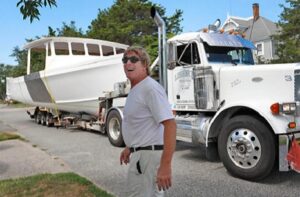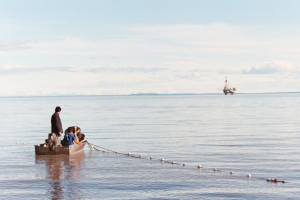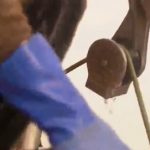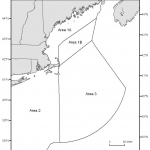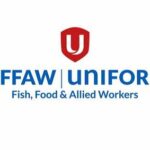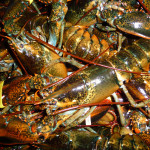Search Results for: North Carolina Fisheries Association
North Carolina Fisheries Association Weekly Update for 08/01/2022
 If you’re a regular reader of the NCFA’s weekly newsletter, you’ve seen many articles lately pointing out the dis-information being distributed by the Coastal Conservation Association (CCA) of North Carolina. Unfortunately, they make it very easy to find a new subject to write about each week, so in fact, I bet almost anyone can do it.
If you’re a regular reader of the NCFA’s weekly newsletter, you’ve seen many articles lately pointing out the dis-information being distributed by the Coastal Conservation Association (CCA) of North Carolina. Unfortunately, they make it very easy to find a new subject to write about each week, so in fact, I bet almost anyone can do it.
Even you!
So, that said, let’s see if our readers have learned anything over the last couple of months. I challenge everyone who reads this to go to the CCA NC
website, click on “Advocacy” and read the following position papers.
• Striped Bass IN the CSMA
• Inshore Shrimp Trawling
• Hidden Cost of Gill nets
• Striped Bass Letter by Chris Elkins
See how many misleading statements, half-truths, and outright lies you can find in each position paper and let us know by commenting on our Facebook page or by sending us an email. I’m curious to see how many of you care enough about North Carolina’s fishing families and fresh local seafood to take the time to read this “stuff” and help the NCFA set the record straight.
Don’t let me down!
Take the time to educate yourself, educate your neighbors, and champion the truth!
Glenn Skinner, NCFA Executive Director
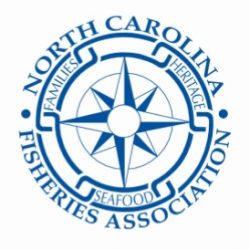
North Carolina Fisheries Association Weekly Update for July 18, 2022
Does CPR Work on Fish? The Coastal Conservation Association Seems to Think SO! – After reading this title you’re probably envisioning a forty-pound Red Drum lying on the deck of a boat, straddled by an angler, receiving mouth to mouth followed by a round of rapid chest compressions, but that’s not the CPR I’m referring to. The CPR I’m talking about is the Coastal Conservation Association’s (CCA) Catch, Photo, and Release (CPR) Initiative. In Coastal States across the Country, including North Carolina, the CCA is holding CPR fishing tournaments where anglers can win big prizes for catching, photographing, and releasing numerous species of coastal finfish. The rules are simple, pay your entry fee, receive your wristband, catch a qualifying species of fish, photograph the fish lying on a ruler with your wristband visible, release the fish, and the longest fish or combination of fish wins. And of course, you have to be a CCA member to win! >click to read, to read all the updates >click here<, for older updates listed as NCFA >click here< 11:15

North Carolina Fisheries Association Weekly Update for July 11, 2022
We cannot emphasize enough how important it is for commercial fishermen and others associated with the seafood industry to take an active interest in the November general election. Find out who the candidates are and where they stand on the issues that are important to you. If you need to know who is on the ballot this November for the NC Senate and House in your district, let us know and we’ll get that information to you. Candidates need your support by your vote and financially. >Click here to read the Weekly Update<, to read all the updates >click here<, for older updates listed as NCFA >click here< 09:26

North Carolina Fisheries Association Weekly Update for June 6, 2022
The MFC voted on May 26th to continue with the gill net closure in the Neuse and Pamlico rivers and directed DMF to study the impacts of removing the gill nets as their preferred management option. But this time the reason for continuing the gill net closure was different. At the meeting, Commissioner Tom Roller said; “In saying that this is an allocation fight, you are right. So, when NCFA comes here and says there is no scientific evidence for removing gill nets, what they are saying is I want my allocation. Yeah, that’s exactly what it is. So, it’s an allocation by the retention of gill nets. Cause a dead fish is a dead fish, right? A dead fish is a dead fish and you have to ask what is the greater value to the economy? And in most cases, and many cases, not all cases, it’s recreational.” I’m confused. . >click to read<. To read all the updates >click here<, for older updates listed as NCFA >click here< 16:16

North Carolina Fisheries Association Weekly Update for May 30, 2022
Finally! An issue both the CCA and NCFA agree on. Do you believe in miracles? If not, you should. On May 25, at the meeting of the North Carolina Marine Fisheries Commission, David Sneed, Executive Director of the CCA NC, made the following statement during the public comment period. “On Southern Flounder, the recent recreational overages were the result of derby fishing brought about by insufficient management action from Amendment 2. Harvest and overage estimates that are provided by MRIP were never intended to be used to manage a fishery through a quota,,, Sound familiar? If you’re one of our regular readers it should. . >click to read<. To read all the updates >click here<, for older updates listed as NCFA >click here< 11:51

North Carolina Fisheries Association Weekly Update for May 23, 2022
Fisheries commission meeting set for Thursday, Friday in Beaufort – >click to read<
North Carolina Fisheries Association Weekly Update for May 23, 2022 – 1
 The NCFA urges everyone to offer comments on draft Amendment 2 to the Striped Bass FMP, to the NC Marine Fisheries Commission at their May 25-26 meeting, supporting lifting the prohibition on the use of gill nets in the upper Neuse and Pamlico Rivers.
The NCFA urges everyone to offer comments on draft Amendment 2 to the Striped Bass FMP, to the NC Marine Fisheries Commission at their May 25-26 meeting, supporting lifting the prohibition on the use of gill nets in the upper Neuse and Pamlico Rivers.
North Carolina Fisheries Association Weekly Update for May 16, 2022
NCWF…Sounds a lot like the CCA’s approach to messaging. Doesn’t it? A couple of weeks ago I had a call from a friend who is not a fisherman, recreational or commercial, but has taken an interest in fisheries management. He reached out to ask me about the North Carolina Wildlife Federation (NCWF), as he had seen them mentioned in several of our weekly newsletters but was having trouble finding their fisheries positions on the NCWF website. >click to read<. To read all the updates >click here<, for older updates listed as NCFA >click here< 09:41

North Carolina Fisheries Association Weekly Update for May 02, 2022
The “Rule of Law” is the political philosophy that all citizens are accountable for the same laws. This philosophy helped fuel the American revolution and was a key principle considered, by our founding fathers, when drafting the U.S Constitution. The Rule of Law ensures, that in a true democracy, the powerful, wealthy, or majority can’t use the law to oppress or control the minority. When it comes to regulating our coastal fisheries both the government and our state seem to struggle with this relatively simple concept. Simply put, it doesn’t matter whether you fish for food, profit, or pleasure, your impacts are similar and therefore you must be treated similarly under the law! Perhaps it’s time for another revolution! >click to read< to read all the updates >click here<, for older updates listed as NCFA >click here< 18:43

North Carolina Fisheries Association Weekly Update for April 25, 2022
Is North Carolina allowing fishermen to circumvent the Endangered Species Act? On April 6, 2022, the Coastal Conservation Association (CCA) of North Carolina sent out an email with so much disinformation I can’t even begin to address it all in one article. The email contained many of the same half-truths and outright lies we’ve been exposing over the last few months but one, above all, really rubbed me the wrong way. The CCA claimed that the “use of gill nets continues in North Carolina waters because the state holds two permits on behalf of commercial fishermen that allow them to circumvent the Endangered Species Act protections and kill or harm endangered sea turtles and sturgeon.” Circumvent. Really? >click to read the WeeklyUpdate<, to read all the updates >click here<, for older updates listed as NCFA >click here< 08:58

North Carolina Fisheries Association Weekly Update for April 11, 2022
A recent study conducted by researchers at LSU shows that Southern Flounder Stocks have declined throughout their entire range from North Carolina to Texas. The study was triggered by dramatic declines in the number of Southern Flounder in Louisiana waters. In 2017, Louisiana’s recreational Southern Flounder harvest declined to a mere 124,000 pounds, down from a high of 624,000 pounds in 2013. The findings of the LSU study fly directly in the face of claims made by the Coastal Conservation Association (CCA) of NC and the NC Wildlife Federation (NCWF), who suggests that decline of Southern Flounder is solely a NC issue caused by commercial fishing, specifically gillnetting. >Click here to read the Weekly Update<, to read all the updates >click here<, for older updates listed as NCFA >click here<

North Carolina Fisheries Association Weekly Update for April 04, 2022
Over the last couple of months, many NC anglers have reached out to the NCFA seeking to get a better understanding of what’s really going on in the world of fisheries management here in North Carolina. That said, there have been several anglers who have questioned our assessment of the CCA’s true agenda, which in our opinion is to reduce or even eliminate harvest of wild fish stocks in both the commercial and recreational sectors. I had an angler from Pamlico County tell me that the CCA had assured him that once the nets were gone recreational bag limits for Red Drum, Southern Flounder, and Speckled Trout would increase and nothing I write could convince him otherwise. This got me thinking that maybe he and other anglers would be more receptive to the truth if someone else wrote it. >click to read the attached article< 16:40

North Carolina Fisheries Association Weekly Update, March 28, 2022 – Seafood Consumers Beware
Seafood Consumers Beware The post below was made by the Coastal Conservation Association (CCA) of North Carolina. After decades of promising NC anglers more fish and then supporting every recreational harvest reduction that’s been proposed, over the last 25 years, it appears the CCA has shifted its focus to North Carolina’s seafood consumers. I guess they’ve taken all they can from the anglers who like to harvest a mess of fish but feel seafood consumers still have more to give. While their message seems innocent enough, expressing a love of seafood and concern for the stock, don’t be fooled! >click to read< 19:50

North Carolina Fisheries Association Weekly Update for March 21, 2022
Last week, on March 15,16, and 17th, the Northern Regional, Southern Regional, and Finfish Advisory Committees met to make recommendations, for the Marine Fisheries Commission to consider, on Amendment 2 to the Striped Bass Fishery Management Plan! There was very little public comment, about a half dozen each night, with the NCFA being the only fisheries group offering comments. We focused on a single issue, allowing the use of gillnets above the ferry lines in the Neuse and Pamlico Rivers, which the MFC chose to remove from the draft Amendment before allowing public or AC input. >click to read the update< 13:24
North Carolina Fisheries Association Weekly Newsletter/Update
 In February of 2022, the North Carolina Fisheries Commission (MFC) reviewed draft Amendment 2 to the Striped Bass Fishery Management Plan (FMP) and approved the draft Amendment to be sent out for public comment and review by the standing Advisory Committees. Prior to approving the draft, a majority of the MFC voted to remove any option, that would allow the possibility of allowing the use of gill nets, above the ferry lines in the Tar-Pamlico and Neuse Rivers, from draft Amendment 2. This vote, in my opinion, was nothing more than an effort, by the MFC, to censor the public and Advisory Committees on an issue they do not wish to discuss. Which raises a very important question.
In February of 2022, the North Carolina Fisheries Commission (MFC) reviewed draft Amendment 2 to the Striped Bass Fishery Management Plan (FMP) and approved the draft Amendment to be sent out for public comment and review by the standing Advisory Committees. Prior to approving the draft, a majority of the MFC voted to remove any option, that would allow the possibility of allowing the use of gill nets, above the ferry lines in the Tar-Pamlico and Neuse Rivers, from draft Amendment 2. This vote, in my opinion, was nothing more than an effort, by the MFC, to censor the public and Advisory Committees on an issue they do not wish to discuss. Which raises a very important question.
|
|
REMINDER: Division of Marine Fisheries opens public comment, schedules listening session and advisory committee meetings
on Estuarine Striped Bass Plan Amendment

North Carolina Fisheries Association Weekly Update for March 07, 2022

North Carolina Fisheries Association Weekly Update for February 21, 2022
If you’ve sat through as many Marine fisheries commission and Advisory Committee meetings as I have, then you’ve certainly heard “we’ve failed to rebuild the Southern Flounder stock.” But is it true? Continue reading at the update. >Click here to read the Weekly Update<, to read all the updates >click here<, for older updates listed as NCFA >click here< 09:26

North Carolina Fisheries Association Weekly Update for February 14, 2022
In last weeks newsletter I mentioned a call I received from a local angler and a comment he made during our conversation. The gentleman seemed to shrug off the fact that the NC Wildlife Federation has been lying about Southern Flounder management and told me I couldn’t deny the fact that we’ve failed to rebuild the southern flounder stock or that if we had let them all spawn once we’d all get what we want, which is to harvest more fish. I took this statement as a personal challenge as I believe both claims are absurd and easy to dispute So, let’s give it a try! >click to read< 10:27

North Carolina Fisheries Association Weekly Update for February 07, 2022
Over the last few weeks, I’ve had quite a few calls regarding the information we’ve shared about the disinformation surrounding the management of Southern Flounder. After last week’s newsletter, I received a call from a gentleman who was obviously an avid supporter of the North Carolina Wildlife Federation and Coastal Conservation Association. The caller, a recreational angler, was concerned with my articles because he felt I was blaming anglers for “overfishing” the Sothern Flounder stock. Continue reading at the update. >Click here to read the Weekly Update<, to read all the updates >click here<, for older updates listed as NCFA >click here< 08:50
North Carolina Fisheries Association Weekly Update for February 07, 2022
 Over the last few weeks, I’ve had quite a few calls regarding the information we’ve shared about the disinformation surrounding the management of Southern Flounder. After last week’s newsletter, I received a call from a gentleman who was obviously an avid supporter of the North Carolina Wildlife Federation and Coastal Conservation Association. The caller, a recreational angler, was concerned with my articles because he felt I was blaming anglers for “overfishing” the Sothern Flounder stock. He was quick to make his point that commercial fishermen remove more flounder from the stock than do recreational anglers, which is true. I assured him, my intent was not to blame anyone but simply to expose the disinformation being spread, by the groups he supported, and encourage the public to question why these groups felt it was necessary to lie to them. I fully expected him to defend the Wildlife Federations lies, as the truth, but he didn’t.
Over the last few weeks, I’ve had quite a few calls regarding the information we’ve shared about the disinformation surrounding the management of Southern Flounder. After last week’s newsletter, I received a call from a gentleman who was obviously an avid supporter of the North Carolina Wildlife Federation and Coastal Conservation Association. The caller, a recreational angler, was concerned with my articles because he felt I was blaming anglers for “overfishing” the Sothern Flounder stock. He was quick to make his point that commercial fishermen remove more flounder from the stock than do recreational anglers, which is true. I assured him, my intent was not to blame anyone but simply to expose the disinformation being spread, by the groups he supported, and encourage the public to question why these groups felt it was necessary to lie to them. I fully expected him to defend the Wildlife Federations lies, as the truth, but he didn’t.UPDATE for 2.7.2022
GENERAL ASSEMBLY:
The NC Supreme Court ruled on Friday that the newly drawn districts by the General Assembly are not constitutional. The vote was 4-3 along partisan lines. The legislators will now need to convene and redraw Congressional, state Senate and House districts. The General Assembly will convene soon, probably next week, to begin to address the court’s ruling and take another look at the districts. The North Carolina primaries are currently slated for May. As noted last week, the GA voted to move the primaries to June but Governor Cooper vetoed the bill.
God bless,
Jerry
NCFA ANNUAL MEETING WILL BE HELD FEBRUARY 28 (IN PERSON/AND VIA ZOOM)
11 AM- 2:00 PM
Fairfield Inn & Suites by Marriott Washington 2090 W 15th St,
Washington, NC 27889
IT’S IMPORTANT THAT ALL MEMBERS TRY TO ATTEND OR ASSIGN PROXIES TO ATTENDING MEMBERS, AS IT
TAKES A MINIMUM OF 50, EITHER IN ATTENDANCE OR BY PROXY, TO CONDUCT BUSINESS. THIS IS THE ONE
AND ONLY MEETING A YEAR WHERE ALL MEMBERS INCLUDING HALF PERCENTERS, CAN VOTE ON ISSUES AND
GIVE DIRECTION FOR THE ORGANIZATION.
EMAIL PROXIES TO: [email protected]
Zoom registration link:
https://us06web.zoom.us/meeting/register/tZAqceCrqjwuEtNbIoKwoCKkTTHeu93flSG7

North Carolina Fisheries Association Weekly Update for January 31, 2022
Over the last few weeks, we’ve been taking a close look at a few, of the many, false claims, regarding the management of the southern flounder fishery, made by the NC Wildlife Federation. This week we’ll be looking at one of the most audacious statements they’ve made to date. The Wildlife Federation claims that “Amendment 2 is the first known effort to effectively reduce harvest in the commercial southern flounder fishery in history. Continue reading at the update. >Click here to read the Weekly Update<, to read all the updates >click here<, for older updates listed as NCFA >click here< 10:03

North Carolina Fisheries Association Weekly Update for January 24, 2022
I hope everyone took the time to read the “Saga of Southern Flounder” article, from the North Carolina Wildlife Federation. If not please click the link below and read it for yourself before continuing to read my comments. After reading the Wildlife Federations article, I’m sure you were shocked by their strong claims of (mis)” management” bias towards the commercial fishery, failed commercial management, and harsh recreational reductions. Continue reading at the update. >Click here to read the Weekly Update<, to read all the updates >click here<, for older updates listed as NCFA >click here< 09:25

North Carolina Fisheries Association Weekly Update for January 17, 2022
The issue of Southern Flounder management, or mismanagement as some have claimed, has been a hot topic lately. Claims that commercial overharvest, imminent stock collapse, failed commercial harvest reductions, and inaction by the state are to blame for declining catches of Southern flounder are rampant. But are they true? If you asked the CCA or NC Wildlife Federation the answer would be yes but if you asked me, I’d say their claims are absurd and not supported, by the numbers. Continue reading at the update. >Click here to read the Weekly Update<, to read all the updates >click here<, for older updates listed as NCFA >click here< 10:33

North Carolina Fisheries Association Weekly Update for January10, 2022
What the Wildlife Federation isn’t telling you about shrimp trawling in NC! Like the Coastal Conservation Association (CCA), the North Carolina Wildlife Federation has very strong opinions about commercial fishing, especially the use of gill nets and shrimp trawls to harvest seafood. They consistently provide their perspective on these issues to the public, and as I pointed out last week, they specialize in playing it fast and loose with the facts. I’ll certainly be providing you with more examples of the deception in the coming weeks. (continues) >Click here to read the Weekly Update<, to read all the updates >click here<, for older updates listed as NCFA >click here< 09:31

North Carolina Fisheries Association Weekly Update for December 10, 2021
Legislative updates, Bill updates, Calendar, >Click here to read the Weekly Update<, to read all the updates >click here<, for older updates listed as NCFA >click here< 08:03

North Carolina Fisheries Association Weekly Update for December 3, 2021
Shocked or Not, You Should Be Disgusted! Prior to the November MFC meeting, when the draft Shrimp FMP would be voted on, the following post was made by ” Rick S ” on social media.,, Legislative updates, Bill updates, Calendar, >Click here to read the Weekly Update<, to read all the updates >click here<, for older updates listed as NCFA >click here< 09:43

North Carolina Fisheries Association Weekly & Special Update for November 12, 2021
Legislative updates, Bill updates, Calendar, >Click here to read the Weekly Update<, to read all the updates >click here<, for older updates listed as NCFA >click here< 08:06

North Carolina Fisheries Association Weekly Update for November 5, 2021
Legislative updates, Bill updates, Calendar, >Click here to read the Weekly Update<, to read all the updates >click here<, for older updates listed as NCFA >click here< 10:18

































